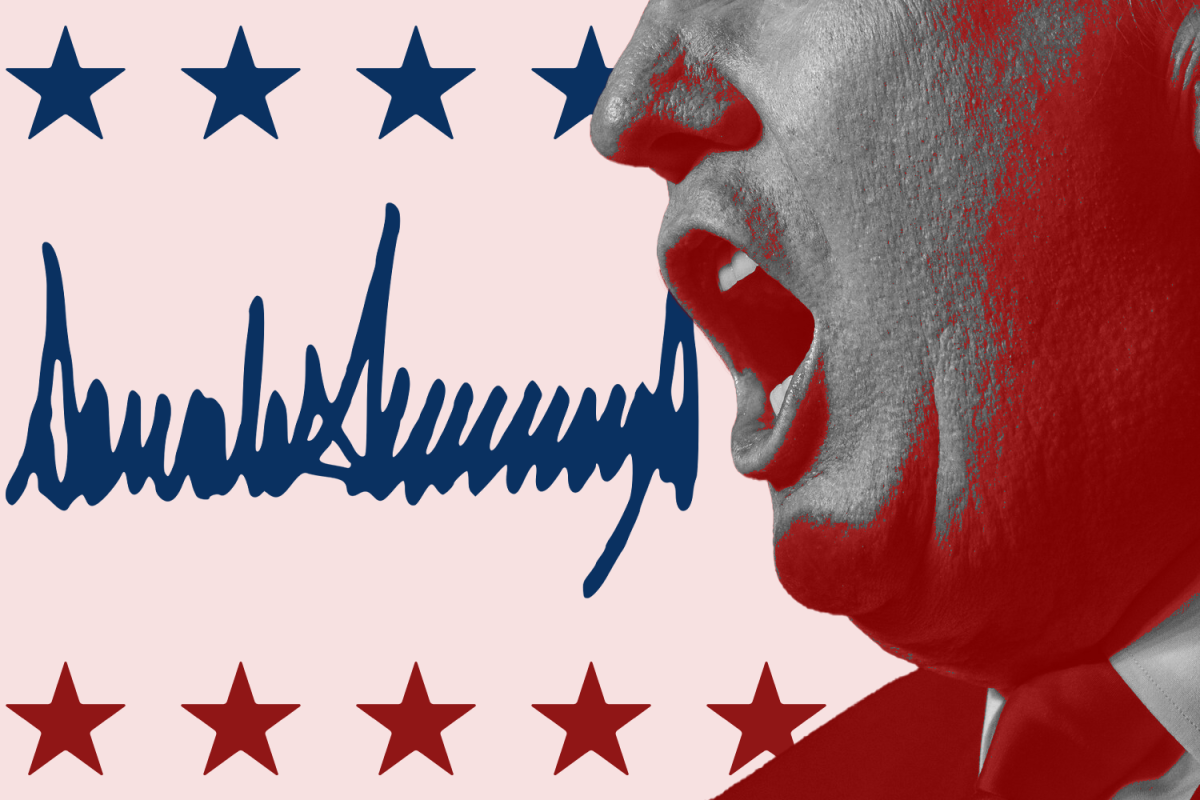The term diversity, equity and inclusion (DEI) is now everywhere in the political landscape. As the government takes more and more action to get rid of it, it’s more important than ever to know what DEI really is, where it comes from and how it’s implemented throughout our country.
For example, criticism of DEI policies flooded government offices in the weeks following President Donald Trump’s inauguration on Jan. 8. The White House website updated on Jan. 20 to read, “the Biden Administration forced illegal and immoral discrimination programs, going by the name ‘diversity, equity, and inclusion’ (DEI), into virtually all aspects of the Federal Government.”
Following soon after was Trump’s executive order, written on Jan. 21, which again moved to discredit DEI by saying its initiatives uphold “dangerous, demeaning, and immoral race- and sex-based preferences…that can violate the civil-rights laws of this Nation.”
The civil rights referred to are the ones outlined in the Civil Rights Act of 1964, which made it possible for DEI initiatives to exist today. The federal law made it illegal to discriminate based on race, color, religion, sex and national origin, a step forward in righting the systemic wrongs in American history. It gave hope that marginalized groups could fit more seamlessly into a country that had long seen differences as uncomfortable and wrong, a goal DEI policies still try to achieve.
However, knowing exactly what DEI policies include is hard, as the term is not defined by law. Over time, the acronym has come to encompass policies that provide workplace education on sexual harassment, accessibility for people with disabilities, solutions to the gender pay gap, blind hiring and more. But Trump focuses on a narrow interpretation of the term, saying he will “terminate” all such initiatives regardless of their use, as posted on the White House website.
As such, biases and racial prejudice fuel much of the administration’s fight against DEI. High-up supporters of the Trump administration have made publicly racist remarks, such as former Fox News host Tucker Carlson’s comments on Kamala Harris’ racial identity of Black and Indian as “Samoan-Malaysian” after he was invited to speak at a Trump rally on Oct. 27, 2024.
The members of the government who support such comments, or make no effort to discount them, are the same ones supporting rhetoric that calls DEI policies “shameful discrimination” because they fail to treat people with “equal dignity and respect,” as is currently posted on the White House website. The hypocrisy of the administration can’t be ignored when they label DEI as worse than their own discriminatory views, a fact that questions why DEI is really being criticized.
Aiding the administration’s rejection of DEI is the 2023 Supreme Court ban on affirmative action in college admissions, which made it illegal to diversify colleges by using race as a basis for admission. Using the ban as precedent, the Trump administration has now banned affirmative action in other institutions and rescinded several executive orders from previous presidents that deal with DEI and affirmative action. These rollbacks took immediate effect, as on April 28, Harvard renamed their Office of Equity, Diversity, Inclusion and Belonging to Community and Campus Life after the Department of Education threatened to withdraw funding if they failed to comply.
As a result of voter doubt surrounding the idea of affirmative action, the Trump administration capitalized on one controversial implementation of DEI to demonize the vast number of policies that it includes. By appealing to the voter base, criminalizing DEI became a political strategy that helped Trump win the 2024 presidential election—leading to the current, widespread attack on all things labeled DEI, whether or not the reasoning behind the criticism is genuine.
Indeed, much of the current anti-DEI rhetoric finds way to celebrate Trump’s quick action: in a “Fact Sheet” shared by the White House, the removal of DEI is said to exemplify how “President Trump is restoring fairness” and “merit-based hiring and promotions across the federal government.” Repetition of similar praise throughout federal documents reinforce aspects of the administration’s agendas, namely the expansion of presidential power.
This is evident as Trump signed more executive orders in his first 100 days as president than any other, totaling at 144, and continually attempts to overturn Supreme Court rulings such as birthright citizenship. Even the 22nd Amendment, which sets the term limit as no more than two, isn’t safe, as Trump said in an NBC interview that he’s “not joking” about trying to run for a third term.
By exhibiting success in DEI rollbacks, the administration displays its ability to achieve the things it promised during its campaign, making the intensity and speed by which Trump criticizes DEI a tool for fueling the administration’s future goals; a tool treated far too casually when considering the very real implications that it has for American society.
Without DEI to combat prejudice, political strategy and more, many aspects of our society will remain similar to how they’ve been throughout America’s history. White people, predominantly men, will stay in positions of power, continuing the cycle of limiting marginalized communities’ ability to succeed in the workplace, higher education and society.
The necessity of DEI in the first place, despite its sometimes awkward implementation, was to remove systemic, discriminatory barriers from continuing to target underrepresented groups. However, because DEI seeks to break up the cycle of white people succeeding more often than any other group, many of those very people occupying positions of power now view it only as a way to maximize their success, not to uplift others.
However, the U.S. is an intrinsically diverse nation, and DEI is a way for that diversity to be seen across American life. By implementing DEI today, the people in the future who make important decisions for our country will be a varying group of people with different life experiences and opinions. This would more accurately represent the wishes of all people in America, not just a select few.
Therefore, DEI initiatives continue to be necessary to create change at a national scale. By breaking up the centuries of majority-white control over major institutions, DEI leads to a society where merit-based hiring and admission systems won’t be marred by the prejudices of a single group’s opinion. Even in the face of heavy criticism, it’s important to remember the intended purpose of DEI, the necessity of a diverse society and the true intent of the people who turn the term into nothing more than a politically-fueled buzzword.









